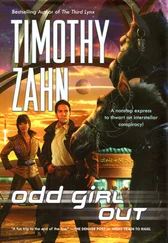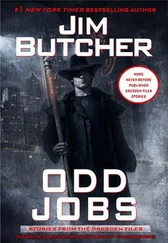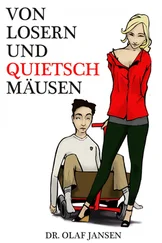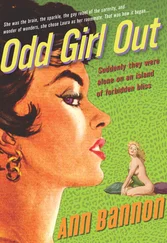Olaf Stapledon - Odd John
Здесь есть возможность читать онлайн «Olaf Stapledon - Odd John» весь текст электронной книги совершенно бесплатно (целиком полную версию без сокращений). В некоторых случаях можно слушать аудио, скачать через торрент в формате fb2 и присутствует краткое содержание. Город: London, Год выпуска: 2012, ISBN: 2012, Издательство: Hachette UK, Жанр: Фантастика и фэнтези, на английском языке. Описание произведения, (предисловие) а так же отзывы посетителей доступны на портале библиотеки ЛибКат.
- Название:Odd John
- Автор:
- Издательство:Hachette UK
- Жанр:
- Год:2012
- Город:London
- ISBN:9780450038570
- Рейтинг книги:5 / 5. Голосов: 1
-
Избранное:Добавить в избранное
- Отзывы:
-
Ваша оценка:
- 100
- 1
- 2
- 3
- 4
- 5
Odd John: краткое содержание, описание и аннотация
Предлагаем к чтению аннотацию, описание, краткое содержание или предисловие (зависит от того, что написал сам автор книги «Odd John»). Если вы не нашли необходимую информацию о книге — напишите в комментариях, мы постараемся отыскать её.
Odd John — читать онлайн бесплатно полную книгу (весь текст) целиком
Ниже представлен текст книги, разбитый по страницам. Система сохранения места последней прочитанной страницы, позволяет с удобством читать онлайн бесплатно книгу «Odd John», без необходимости каждый раз заново искать на чём Вы остановились. Поставьте закладку, и сможете в любой момент перейти на страницу, на которой закончили чтение.
Интервал:
Закладка:
For some weeks John refrained, so far as I know, from activities of this kind. But his behaviour toward his elders had become definitely more self-conscious and more body-conscious. He was evidently discovering in his own person an interest which had hitherto escaped him. He studied the art of displaying the bizarre attractiveness of his young body to the best advantage in the eyes of the inferior species. Of course he was far too intelligent to indulge in those excesses of adornment which so often render the adolescent ludicrous. Indeed, I doubt whether any but the most intimate and persevering observer would have guessed that the artistry of his behaviour was at all conscious. That it actually was so I inferred from the fact that it varied according to the standards of his audience, now expressing the crudest sort of self-delight and shameless seductiveness, now attaining to ti-sat unadorned and steely grace which was to characterize the later John.
During the eighteen months before he reached the age of sixteen John indulged in occasional and abortive love-affairs with older boys and young men. He was still sexually undeveloped, but imagination forestalled his physique, and made him capable of amatory sensitiveness beyond his years. Throughout this phase, however, he seemed indifferent to the fact that most girls showed some degree of physical repulsion in his presence.
But when he was sixteen, and in appearance a queer sort of twelve-year-old, he turned his attention to woman. For some weeks the girls with whom he came in contact had shown a more positive, often a positively vindictive, attitude to him. This suggests at least that they were being forced to take note of him with new eyes, and that he had already begun to study a new technique of behaviour, directed toward the opposite sex.
Having perfected his technique, he proceeded to use it with cold deliberation upon one of the acknowledged stars of local society. This haughty young woman, who bore the surprising name of Europa, was the daughter of a wealthy shipowner. She was fair, large, athletic. Her normal expression was a rather contemptuous pout, tempered by a certain cow-like wistfulness about the eyes. She had been engaged twice, but rumour affirmed that her experience of the opposite sex had been far more intimate than was justified by mere betrothal.
One afternoon down at the bathing place accident (seemingly) brought John to the notice of Europa. She was lying in the sun, attended by her admirers. Unwitting, she had settled herself close to John’s towel. Her elbow was on the corner of it. John, needing to dry himself after a swim, approached her from behind, mildly tugged at the towel and murmured, “Excuse me.” She turned, found a grotesque young face close to her own, gave a start of repulsion, hastily released the towel, and recovered her composure by remarking to her audience, “Heavens! What an imp!” John must have heard.
Later, when Europa executed one of her admirable dives from the top board, John evidently managed to get entangled with her under water, for they came up together in close contact. John laughed, and broke away. Europa was left gasping for a moment, then she, too, laughed, and returned to the diving platform. John, looking like a gargoyle, was already squatting on one of the boards, As she stretched her arms for the dive, she remarked with kindly contempt, “You won’t catch me this time, little monkey.” John dropped like a stone, and entered the water half a second behind her. After a considerable time they appeared together again. Europa was seen to smack his face, break from his clinging arm, and make for shore. There, she sunned and preened herself.
John now disported himself in her view, diving and swimming. He had invented a stroke of his own, very different from the “trudgeon” which was still at this time almost unchallenged in the remote northern provinces. Lying on his stomach in the water and flicking his feet alternately, while his arms behaved in the ordinary “trudgeon” manner, he was able to outstrip many experts older than himself. Some said that if he would only learn a decent stroke he would develop into a really fine swimmer. No one in the little provincial suburb realized that John’s eccentric stroke, or something very like it, a product of Polynesia, was even then ousting the “trudgeon” from the more advanced swimming circles of Europe and America, and even England.
With this eccentric stroke John displayed his prowess before the reluctantly attentive eyes of Europa. Presently he came Out of the water and played ball with his companions, running, leaping, twisting, with that queer grace which few could detect, but by which those few were strangely enthralled. Europa, talking to her swains, watched and was evidently intrigued.
In the course of the game John threw the ball, seemingly by accident, so that it knocked her cigarette from her hand. He leapt to her, sank on one knee, took the outraged fingers and kissed them, with mock gallantry and a suggestion of real tenderness. Every one laughed. Still holding Europa’s hand, he brought his great eyes to bear upon her face, inquiringly. The proud Europa laughed, unaccountably blushed, withdrew her hand.
This was the beginning. There is no need to follow the stages by which the urchin captured the princess. It is enough to dwell for a moment on their relations when the affair was at its height. Little knowing what was in store for her, Europa encouraged the juvenile philanderer, not only at the swimming pool, where they gambolled together, but also by taking him out in her car. John, I should say, was much too wise, and much too occupied with other matters, to make his society cheap. Their meetings were not very frequent; but they were frequent enough to secure his prey.
The metaphor is perhaps unjust. I do not pretend to be able to analyse John’s motives adequately, even the comparatively simple motives of his adolescence. Though I feel fairly sure that the origin of his attack upon Europa was his new craving to be admired by a woman in her prime, I can well believe that, as the relationship developed, he came to regard her in a much more complex manner. He sometimes watched her with an expression in which aloofness struggled not only with contempt but with genuine admiration. His delight in her caresses was doubtless in part due to dawning sexual appreciation. But though he could imaginatively judge her and enjoy her from the point of view of the male of her species, he was, I think, always conscious of her biological and spiritual inferiority to himself. The delight of conquest and the luxury of physical contact with a fullblooded and responsive woman were always for him poisoned by the sense that this contact was with a brute, with something which could never satisfy his deeper needs, and might debase him.
On Europa the relationship had striking effects. The swains found themselves spurned. Bitter taunts were flung. It was said that she had “fallen for a kid, and a freak kid, too.” She herself was obviously torn between the need to preserve her dignity and the half-sexual, half-maternal hunger which John had inspired. Horror at her plight and revulsion from the strangeness of the thing that had enthralled her made matters worse. She once said something to me which revealed the nerve of her feeling for John. It was at a tennis party. She and I were alone for a few minutes. Examining her racquet, she suddenly asked, “Do you blame me, about John?” While I was trying to reply, she added, “I expect you know what a power he has. He’s like—a god pretending to be a monkey. When you’ve been noticed by him, you can’t bother about ordinary people.”
The climax of this strange affair must have happened very shortly after that incident. I heard the story from John himself several years later. He had laughingly threatened to invade Europa’s bedroom one night by way of the window. It seemed to her an impossible feat, and she dared him to do it. In the small hours of the following morning she woke to a soft touch on her neck. She was being kissed. Before she had time to scream a well-known boyish voice made known that the invader was John. What with astonishment, amusement, defiance and sexual-maternal craving, Europa seems to have made but a half-hearted resistance to the boy’s advances. I can imagine that in the grip of his still childish arms she found an intoxicating blend of the innocent and the virile. After some protest and sweet struggle she threw prudence to the winds and responded with passion. But when she began to cling to him, revulsion and horror invaded him. The spell was broken.
Читать дальшеИнтервал:
Закладка:
Похожие книги на «Odd John»
Представляем Вашему вниманию похожие книги на «Odd John» списком для выбора. Мы отобрали схожую по названию и смыслу литературу в надежде предоставить читателям больше вариантов отыскать новые, интересные, ещё непрочитанные произведения.
Обсуждение, отзывы о книге «Odd John» и просто собственные мнения читателей. Оставьте ваши комментарии, напишите, что Вы думаете о произведении, его смысле или главных героях. Укажите что конкретно понравилось, а что нет, и почему Вы так считаете.












